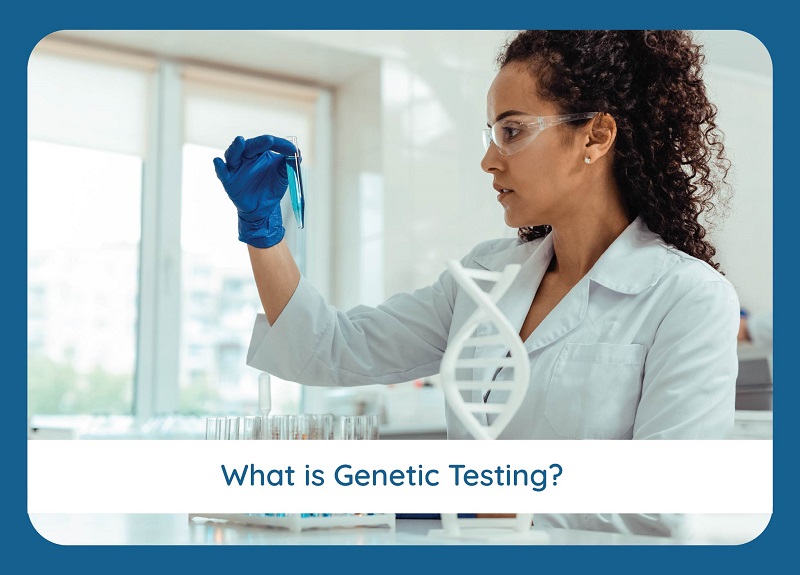
A clear look into your DNA - to guide your health today and protect your future.
Genetic testing is a laboratory test that examines your DNA, the genetic blueprint that makes you who you are. These tests are designed to identify specific inherited or acquired changes (mutations) in your genes that may increase your risk for certain diseases - especially cancers like breast, ovarian, colon, prostate, and pancreatic cancer.
Understanding these genetic changes gives you and your doctors valuable information to prevent, detect, or treat cancer more effectively.
Why Your DNA Matters
Your body is made up of trillions of cells, each containing genes that act like instruction manuals. Sometimes, these instructions get misprinted - called mutations - and that can lead to disease.
Some mutations are:
Inherited (germline) - passed from parent to child
Acquired (somatic) - develop over time, often in cancer cells
Genetic testing helps identify these mutations, often before symptoms appear or even before the disease develops.
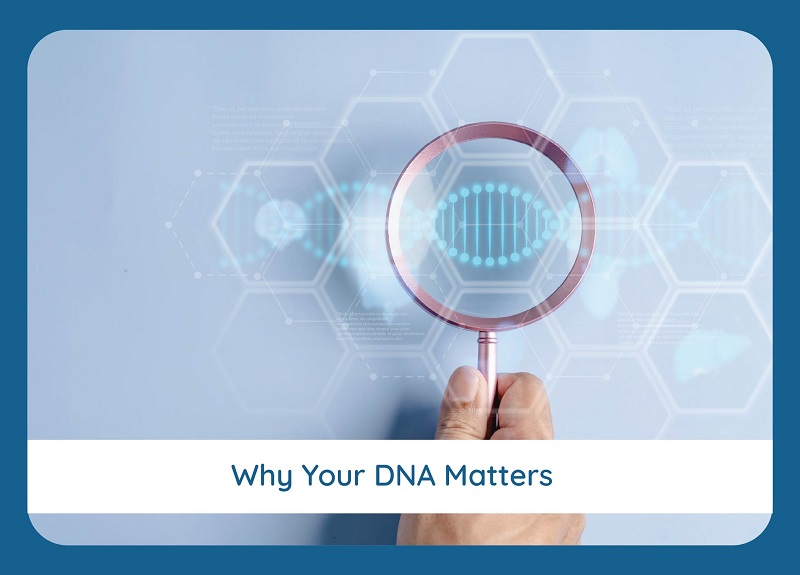
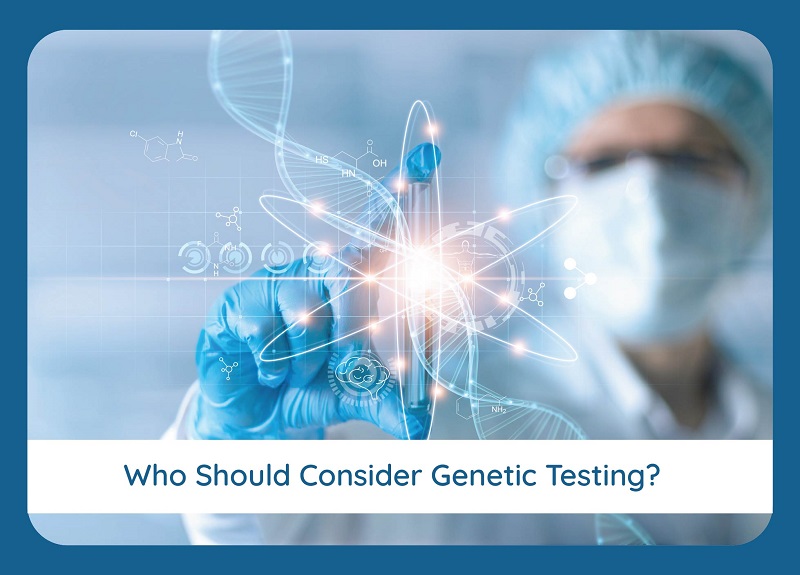
Who Should Consider Genetic Testing?
Genetic testing isn't for everyone - but it can be life-saving for people in certain situations. You may benefit if:
Criteria:
Family history of cancer - Multiple relatives with cancer on the same side of the family
Early onset cancers - Diagnosed under age 50 (e.g., breast, colon)
Rare or uncommon cancers - Triple-negative breast cancer, ovarian cancer, pancreatic cancer, male breast cancer
Multiple cancers in the same person - E.g., breast and ovarian, or colon and uterine cancer
Known gene mutation in the family - BRCA, Lynch Syndrome, TP53, etc.
You want to guide family planning or preventive care - To protect your children or siblings
What Happens During the Test?
(Visual: Timeline or 4-step infographic)
-
Pre-Test Counselling
Dr. Aparna Dhar explains the purpose of the test, what it can tell you, and helps you decide if it's right for you. -
Sample Collection
A small sample of your blood or saliva is collected—non-invasive and painless. -
Lab Analysis
Your sample is sent to a certified lab where your DNA is analyzed for specific gene changes. Results typically take 2 - 4 weeks. -
Report & Interpretation
Dr. Dhar personally reviews your report, explains what it means, and guides you on next steps—whether you're positive, negative, or have a variant of unknown significance (VUS).
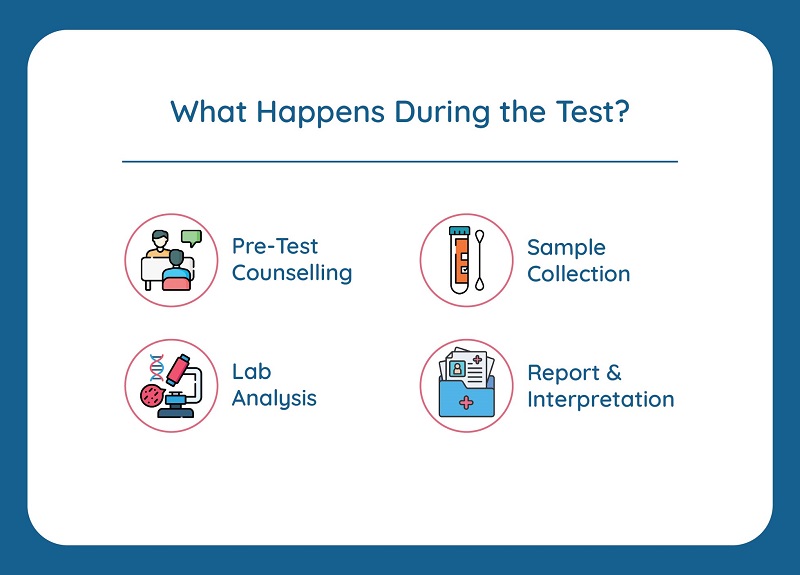
What Will the Results Show?
Your results may fall into one of the following categories:
Result Type
Positive - A harmful gene mutation was found that increases your cancer risk. You may need regular screenings, preventive care, or family testing.
Negative - No concerning mutations found. Your risk may be average, but family history still matters.
VUS (Variant of Uncertain Significance) - A change in the gene was found, but its impact is not yet fully understood. These are tracked and reclassified over time.
Dr. Dhar helps you interpret the result in the context of your personal and family history, so you can make informed decisions.
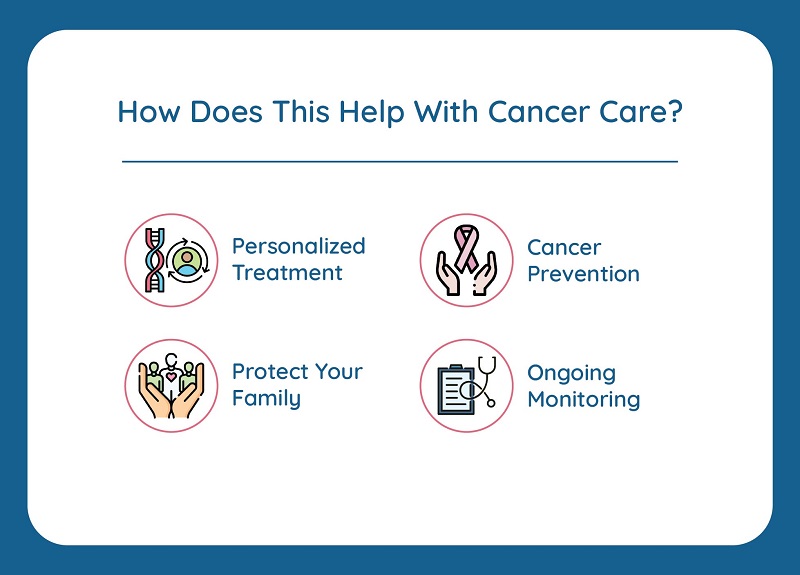
How Does This Help With Cancer Care?
Genetic testing has real, practical benefits:
-
Personalized Treatment
Tailor cancer treatments based on your genetic profile (precision oncology)
Choose targeted therapies or immunotherapy that work best for you
-
Cancer Prevention
Take preventive measures like regular screening, lifestyle changes, or even risk-reducing surgeries
Identify risks before symptoms start
-
Protect Your Family
Help family members understand their own risk and get tested if needed
Plan for safer pregnancies and informed life choices
-
Ongoing Monitorings
If you're at risk, Dr. Dhar builds a long-term plan with routine check-ups and screening
Your Journey Doesn't End with a Report
Dr. Aparna Dhar provides comprehensive post-test counselling, whether your results are positive, negative, or uncertain. She helps you:
Understand what the result means for you and your family
Plan next steps with your oncologist or physician
Guide relatives on whether they should be tested
Make informed decisions without fear or confusion
Real Empowerment Starts with Knowledge
Genetic testing is not just about risk - It's about prevention, preparation, and peace of mind.
Whether you're making treatment decisions or simply looking to understand your family's health, Dr. Dhar is here to help you navigate the science with clarity and compassion.
